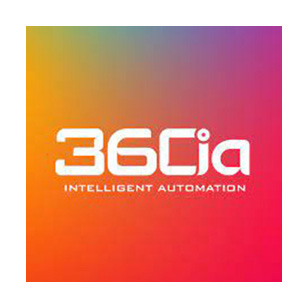Authorized Stock vs. Issued Stock
Disclaimer: This post discusses general legal issues, but it does not constitute legal advice in any respect. This post is not a substitute for legal advice and is intended to generate discussion of various issues. No reader should act or refrain from acting on the basis of any information presented herein without seeking the advice of counsel. Cara Stone, LLP. and the author expressly disclaims all liability in respect of any actions taken or not taken based on any contents of this post. The views expressed herein are personal opinion.
When tending to a company’s cap table, it is important to know the difference between authorized stock and issued stock.
Authorized stock is a term that refers to the total number of shares of stock that a corporation is authorized or allowed to issue to shareholders. Issued stock, on the other hand, is the number of shares that have actually been issued or granted to shareholders. Under securities laws, a company cannot issue more shares than it has authorized. Because of this the number of authorized shares should always be higher or the same than the number of issued shares.
A corporation sets an upper limit on the number of shares that it can issue, known as the authorized stock amount. This limit is determined by the corporation’s certificate of incorporation (COI), which are the legal documents that define the corporation’s purpose and outline its rules and regulations.
The number of authorized shares can be changed at any time and will often increase as the company progresses through financing rounds. It is important to note that the authorized stock amount does not necessarily reflect the number of shares that are actually issued or outstanding, as the corporation may choose to keep some or all of the authorized shares unissued.
For example, if a company has set up an employee stock option plan, the company may authorize some amount of shares to be issued to future employees. However, those shares do not become issued shares until the company has given the employee a stock option grant. Even after the stock option grant is signed, if the employee is subject to vesting, only those vested options are considered issued shares.
This can cause some confusion, especially as a company is in the midst of a financing or if it has several employees vesting on a monthly basis. That’s why strong cap table management is critical for a companies success.
In summary, authorized stock refers to the total number of shares of stock that a corporation can issue to shareholders, as defined in its articles of incorporation. It is important to distinguish authorized stock from issued stock, when looking at the companies cap table.
Disclaimer: This post discusses general legal issues, but it does not constitute legal advice in any respect. This post is not a substitute for legal advice and is intended to generate discussion of various issues. No reader should act or refrain from acting on the basis of any information presented herein without seeking the advice of counsel. Cara Stone, LLP. and the author expressly disclaims all liability in respect of any actions taken or not taken based on any contents of this post. The views expressed herein are personal opinion.
When tending to a company’s cap table, it is important to know the difference between authorized stock and issued stock.
Authorized stock is a term that refers to the total number of shares of stock that a corporation is authorized or allowed to issue to shareholders. Issued stock, on the other hand, is the number of shares that have actually been issued or granted to shareholders. Under securities laws, a company cannot issue more shares than it has authorized. Because of this the number of authorized shares should always be higher or the same than the number of issued shares.
A corporation sets an upper limit on the number of shares that it can issue, known as the authorized stock amount. This limit is determined by the corporation’s certificate of incorporation (COI), which are the legal documents that define the corporation’s purpose and outline its rules and regulations.
The number of authorized shares can be changed at any time and will often increase as the company progresses through financing rounds. It is important to note that the authorized stock amount does not necessarily reflect the number of shares that are actually issued or outstanding, as the corporation may choose to keep some or all of the authorized shares unissued.
For example, if a company has set up an employee stock option plan, the company may authorize some amount of shares to be issued to future employees. However, those shares do not become issued shares until the company has given the employee a stock option grant. Even after the stock option grant is signed, if the employee is subject to vesting, only those vested options are considered issued shares.
This can cause some confusion, especially as a company is in the midst of a financing or if it has several employees vesting on a monthly basis. That’s why strong cap table management is critical for a companies success.
In summary, authorized stock refers to the total number of shares of stock that a corporation can issue to shareholders, as defined in its articles of incorporation. It is important to distinguish authorized stock from issued stock, when looking at the companies cap table.
























